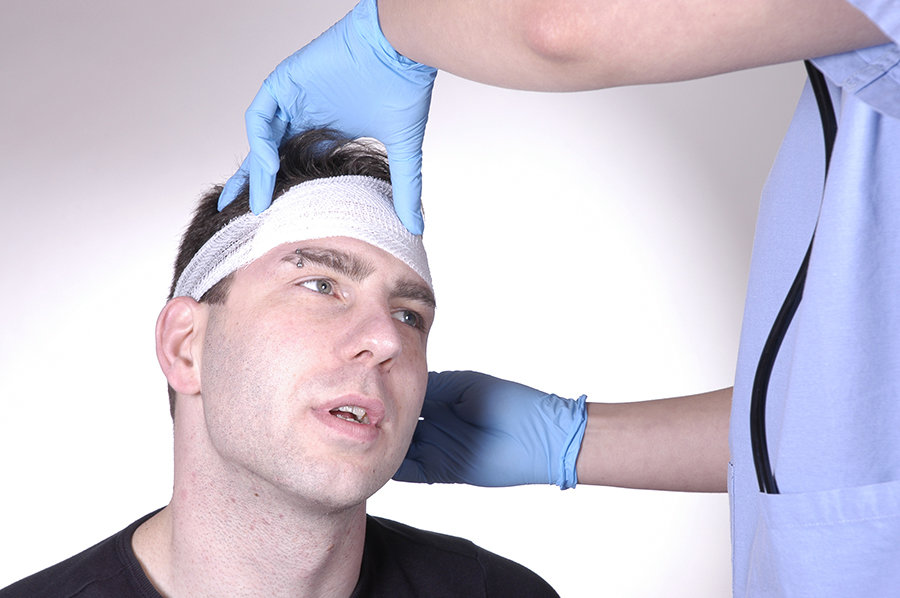
All head injuries should be taken seriously, but traumatic brain injuries are some of the most serious. There are varying degrees of severity and symptoms, so it’s important to be aware of what constitutes a traumatic brain injury so the right treatment can be sought promptly.
Mild Traumatic Brain Injuries
The signs of a mild TBI are similar to that of a concussion and include the following symptoms:
- loss of consciousness
- if no loss of consciousness, victims may be dazed or disoriented
- nausea/vomiting
- difficulty sleeping or excessive sleeping
- dizziness or loss of balance/coordination
- blurred vision
- bad taste in the mouth
- mood changes
- problems with memory or concentration
Signs of a Moderate to Severe TBI
Symptoms of a more severe TBI can include any of the previous symptoms or the following:
- persistent headaches
- repeated vomiting
- seizures
- dilated pupils or uneven pupils
- fluids draining from the nose or ears
- inability to wake up
- weakness in fingers and toes
- significant behavior changes
- coma
Diagnosing a TBI
A TBI is considered a medical emergency, and symptoms often progress quickly. Any head injury should be seen immediately for further testing and prompt treatment. Patients presenting with a possible TBI will be given the Glasgow Coma Test, a 15-step evaluation that helps assess how severe the injury is.
Imaging is also incredibly important, and CT scans and MRIs are the most commonly employed diagnostic aids. CT scans are used immediately because they’re faster than an MRI and quickly show doctors in just a few minutes whether there is any bleeding, fractures, or brain tissue swelling. MRIs are typically saved for stable patients.
Treating a TBI
Mild TBIs don’t require much treatment outside of rest and over-the-counter pain medications to manage headaches. These patients do need to be monitored closely at home, so they shouldn’t be spending the next couple of days alone.
Moderate to severe TBIs require more in-depth care, and patients may even need the assistance of a Tacoma brain injury law firm to help them recoup their financial losses. Treatment focuses on ensuring the patient is receiving adequate oxygen and blood supply to their brain. Drugs to manage symptoms (swelling, seizures, etc.) might be administered, and some patients are put into an induced coma to protect damaged brain tissue. Surgery is sometimes required, too, especially if there is a skull fracture, a blood clot, or major swelling.
If anyone—child or adult—hits their head, they should be seen by a doctor immediately. Brain injuries aren’t something to “wait and see” with. It’s much better to be safe than sorry!
Anica Oaks
Recent Posts
- Castor Oil For Better Hair Growth: Is It Myth Or Fact?
- Exploring the Differences Between Sermorelin, Ipamorelin, Ibutamoren, GHRP2, and GHRP6: Understanding Their Role in Human Growth Hormone Regulation
- Unraveling the Mystery: Understanding the Causes and Prognosis of Ventricular Tachycardia Without Apparent Heart Disease
- Understanding Grandparents’ Rights in Oklahoma: Navigating Visitation and Legal Protections
- 10 Reasons to Consider Hypnotherapy for Your Health

